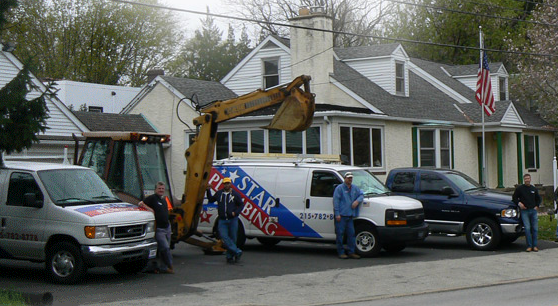What Type Of Torch Should You Use For Soldering Water Heater Fittings? – A Guide to Selecting the Right Torch
Soldering water heater fittings requires a torch that is capable of producing a high temperature flame. The most suitable type of torch for this task is an oxy-acetylene torch, which has the ability to produce a very hot flame and can reach temperatures up to 4500°F (2482°C). This type of torch is also well suited for soldering copper pipes and other metals. When using an oxy-acetylene torch, it is important to ensure that the oxygen and acetylene levels are set correctly in order to avoid any accidents or damage. Additionally, you should use only approved protective equipment when using this type of torch.
What Type Of Torch Should You Use For Soldering Water Heater Fittings?
When soldering water heater fittings, there are a few types of torches that can be used. Each type of torch has its own advantages and disadvantages and should be chosen depending on the job at hand.
Open Flame Torch
An open flame torch is a popular choice for soldering water heater fittings due to its simplicity and affordability. The benefits of an open flame torch are that it is easy to light, produces a strong flame, and is relatively inexpensive. The main disadvantage of an open flame torch is that it requires more skill to use than other types of torches, as it requires the user to keep the flame at a constant temperature in order to ensure proper soldering.
Propane Torch
A propane torch is another popular choice for soldering water heater fittings due to its ease of use and availability. Propane torches are easy to light and provide a consistent flame with less effort than an open flame torch. The main disadvantage of using a propane torch is that it can be difficult to control the heat output, which can lead to over- or under-heating the fitting during soldering which can result in poor results or even damage the fitting.
Butane Torch
Butane torches are the most expensive option for soldering water heater fittings but offer several advantages over open-flame torches or propane torches. Butane torches are very easy to light, provide consistent heat output, and require minimal skill in order to achieve quality results. The main disadvantage of butane torches is their cost; they tend to be much more expensive than other types of torches due to their convenience and reliability.
When choosing a torch for soldering water heater fittings, it is important to consider your skill level with each type of torch as well as your budget in order to make sure you choose the right one for your job. It is also important to protect surrounding areas before starting any work with any type of torch in order to avoid any potential accidents or damage caused by sparks or heat transfer. Lastly, it is important always test the temperature of your torch before starting any work in order ensure you have adequate heat output for successful soldering results.
What Type Of Torch Should You Use For Soldering Water Heater Fittings?
Soldering water heater fittings correctly can be a challenging task for many homeowners. But with the right tools and safety practices, you can successfully complete your plumbing project. The type of torch you use for soldering water heater fittings is an important decision to consider when tackling this home improvement job.
Types of Torches
There are several types of torches available, each with their own advantages and disadvantages. The most common types used for soldering water heater fittings are propane or MAPP gas torches, butane torches, and oxy-acetylene torches.
Propane or MAPP gas torches are the least expensive option and offer greater portability than oxy-acetylene torches. However, they produce a less intense flame and don’t get hot enough for some soldering applications. Butane torches are more expensive but offer more heat than propane or MAPP gas models. Oxy-acetylene torches produce an intense flame that gets very hot making them ideal for soldering jobs that require higher temperatures, but they are also more expensive and heavier than the other types of torches.
Safety Practices While Soldering Water Heater Fittings
Before starting any soldering project, it is important to take safety precautions to protect yourself from potential hazards. Wear protective gear such as gloves, goggles, and long sleeves to protect your eyes and skin from splatter and heat. Additionally, make sure to turn off the gas or electric supply before beginning the job in order to avoid any potential accidents or injuries. Finally, keep flammable materials away from the torch as it can cause a fire hazard if not handled properly.
Preparation Steps Before Soldering Water Heater Fittings
It is also essential to prepare the area before starting any soldering project in order to ensure a successful outcome. Make sure that all pipes are clean so that there is no debris that could interfere with the solder’s ability to bond properly with the metal surfaces of the pipes being joined together. Additionally, make sure there is adequate ventilation in order to avoid toxic fumes from building up in enclosed spaces while you work. Finally, check all connections prior to applying heat in order to identify any potential issues that may need addressing before you start soldering the pipes together.
FAQ & Answers
Q: What type of torch should I use for soldering water heater fittings?
A: The best torch to use for soldering water heater fittings is a propane torch. Propane torches are easy to control and provide an even heat distribution for precise soldering. They also don’t generate as much heat as an open flame or butane torch, so it won’t damage the fittings.
Q: Are there any safety tips I should follow when soldering water heater fittings?
A: Yes, it’s important to take the necessary safety precautions when soldering water heater fittings. Always wear protective gear, such as gloves and goggles, to protect yourself from any possible burns or splashes of molten metal. Make sure to shut off all gas or electric supplies before beginning your work and keep any flammable materials away from the torch.
Q: What steps should I take to prepare for soldering water heater fittings?
A: Before you start your work, make sure to test the flame temperature of your torch, clean the area around the fittings and protect any surrounding areas that could be damaged by heat or steam. Also make sure that all of your tools are in good working condition and that you have everything you need close at hand.
Q: Is there an optimal flame temperature I should use when soldering water heater fittings?
A: Yes, it’s important to use the right flame temperature when soldering water heater fittings. A flame temperature between 1,800°F (982°C) and 2,400°F (1,315°C) is ideal for most types of brass or copper pipes and fixtures. If you’re using a different type of material, make sure to do some research beforehand so that you know what temperature range is safe for your specific project.
Q: Can I solder copper pipes together without a torch?
A: Yes, it is possible to solder copper pipes together without a torch. However, this method requires more skill and precision than using a torch and can be time consuming if done improperly. It also may not produce results as strong as those achieved with a propane torch. For most projects involving copper pipes, it’s best to use a propane torch for optimal results.
In conclusion, when soldering water heater fittings, it is important to use the correct torch for the job. A propane torch is ideal for this because it can reach a hotter temperature than most butane torches and has a longer burn time. It is also better suited for larger jobs, such as soldering water heater fittings. Safety should always be top priority when using any type of torch, so make sure that you are familiar with how to properly use and handle the torch before beginning any project.
Author Profile

-
Star Plumbing, located in Elkins Park, PA, is a full-service plumbing company owned and operated by Mitchell Gordon. Since its inception, Star Plumbing has been providing its customers with reliable, quality plumbing services.
The Star Plumbing website offers informative articles on DIY plumbing and plumbing equipment, offering readers helpful advice and tips on how to take care of their own plumbing needs. This is a great resource for those who are looking to tackle a plumbing project themselves, as it provides useful information and advice on how to safely and successfully complete a plumbing job. Additionally, the website provides detailed descriptions of the various plumbing tools and equipment that are available, as well as detailed instructions on how to use them.
Star Plumbing’s website is a great resource for anyone with plumbing needs. Whether a customer is looking for advice on how to take care of their own plumbing or to schedule service from Star Plumbing, the website offers helpful advice and information for all their plumbing needs.
Latest entries
- April 12, 2024Plumbing Equipment And AccesoriesI Tested And Ranked The Best 10 Inch Rough In Round Toilet: And Here’s What I Found
- April 12, 2024Plumbing Equipment And AccesoriesI Tested And Ranked The Best Stone That Cleans Toilets: And Here’s What I Found
- April 12, 2024Plumbing Equipment And AccesoriesI Tested And Ranked The Best Heat Tape For Plumbing: And Here’s What I Found
- April 12, 2024Plumbing Equipment And AccesoriesI Tested And Ranked The Best Kaboom Toilet Bowl Tablets: And Here’s What I Found
